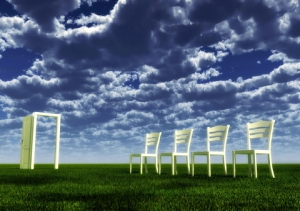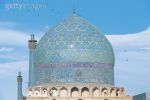DAWN AND RESURRECTION ARE SYNONYMOUS
 This morning, I woke up before my dog, to attend one of our local church’s annual Sunrise Easter service. I am not a member of this church, but have lived in this little hamlet of 4500 souls for 18 years. It’s an everyone knows everyone kind of place. And yet, for one reason or another, I’d never attended before. It’s held at the shore of our Town Pond, which is lovely and secluded and has an ancient history (if one could call New England history ancient.) As I walked the path to the pond, there were luminarias lighting the way (white paper bags weighted with sand and little tea candles in them). The hot pink and grey-blue sunrise rose up over the water, blessing our sleepy-eyed band of celebrants. And while I understand that many past services had a frost and a chill in the air, today’s early moments began balmy. The crackling bonfire was more symbolic perhaps than necessary. Although, I don’t think we can ever get enough of the symbols, the concepts, or the people that bring light to the world. The mood was meditatively quiet. The prayers were simple, direct, and ready for immediate application.
This morning, I woke up before my dog, to attend one of our local church’s annual Sunrise Easter service. I am not a member of this church, but have lived in this little hamlet of 4500 souls for 18 years. It’s an everyone knows everyone kind of place. And yet, for one reason or another, I’d never attended before. It’s held at the shore of our Town Pond, which is lovely and secluded and has an ancient history (if one could call New England history ancient.) As I walked the path to the pond, there were luminarias lighting the way (white paper bags weighted with sand and little tea candles in them). The hot pink and grey-blue sunrise rose up over the water, blessing our sleepy-eyed band of celebrants. And while I understand that many past services had a frost and a chill in the air, today’s early moments began balmy. The crackling bonfire was more symbolic perhaps than necessary. Although, I don’t think we can ever get enough of the symbols, the concepts, or the people that bring light to the world. The mood was meditatively quiet. The prayers were simple, direct, and ready for immediate application.
I saw some of my dear friends around that fire, those who know the kind of challenging year I’ve had. I felt their good will towards me through their eyes, their smiles, and hugs. I hope they sensed the same from me. Resurrection is the happy part, but its significance is diminished if we don’t remember what comes before it. For most of the world’s Christians, today is Resurrection day. It means that Jesus Christ rose from the dead and returned to life everlasting… AFTER suffering a torturous, laborious, and unjust death. Even outside of Christianity, many faiths believe in a future state after death, where there will be a resurrection, a rising again, to new life in some shape or form. Yet resurrection’s power, its gift of joy which passeth all understanding (no matter your faith) comes from the awe, the incredulity of being brought back from our darkest places, when we are crippled or broken or blind and death seems certain. 
Ena Zizi was there. (From an excerpt from Paul Jeffrey’s article, “Out of the Rubble”, March 23rd, The Christian Century:
After having been buried for a week in the rubble of Haiti’s January 12th earthquake, Ena Zizi was rescued by the Mexican team called the Gophers (rescue workers, some of them survivors themselves of a horrific earthquake in Mexico city in 1985). As they pulled her dirty and injured body out on a broken piece of plywood salvaged from the rubble and carefully passed her down over three stories of debris to the ground, the 70-year-old woman was singing. Her singing was inarticulate, as she hadn’t had any water to drink for seven days. Yet her joy was infectious. The members of the Mexican rescue team who were carrying her began crying.
Zizi, who was severely dehydrated and had suffered a broken leg and dislocated hip, yelled for help for hours, then for two days, conversed with a priest, and when he grew silent, she “talked only to God.” Her singing was gratitude, the indominability of the human spirit, and a way for her rescuers to find her. To the South African and Mexican rescue teams surrounding her, she was very real proof of resurrection.
Resurrection is never just personal. It is always in relationship. Yesterday, while I was out on my daily run, I ran into a neighbor out for a walk with her two school age children. Her 11-year-old daughter has been struggling with leukemia since May. I noticed her hair was growing back in a full, spiky, long crew cut fashion. And she had dyed it in colors of the rainbow. I wept later to witness her resurrection, the “resumption of vigor” (one definition). And her courage to wait on it, expectantly, faithfully.
Song of the Day: Amazing Grace by John Newton (1725-1807) (Ex-slave trader)
Stanza from the Song of the Day: “Through many dangers, toils, and snares/I have already come/’Twas Grace that brought me safe thus far/and Grace will lead me home.”
Quote of the Day: “Dawn and resurrection are synonymous. The reappearance of the light is the same as the survival of the soul.” -Victor Hugo








